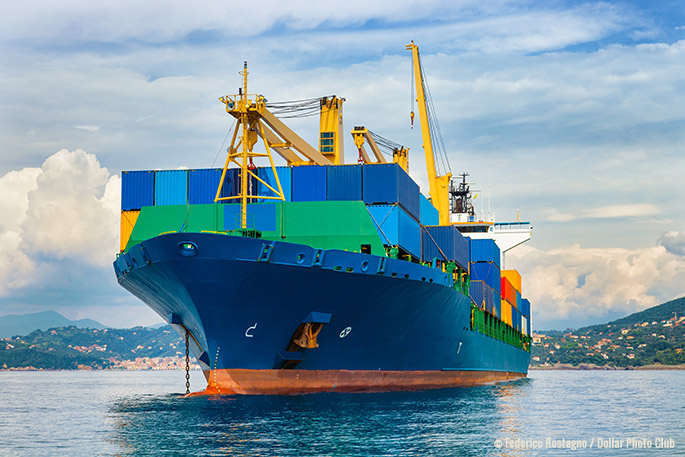
When people think of big sources of pollution, they often think of cars stuck in traffic increasing air pollution, or airplanes guzzling up valuable resources. But what about ships?
According to a recent article at Mother Jones, oceangoing ships are providing some of the biggest volumes of air pollution, with some of the most deadliest consequences to human health. Exposure to shipping pollution can cause health problems like lung cancer, diabetes, and heart issues. Ship fuel emits toxins that are known to cause cell damage as well, and a team of researchers found that emissions from ships are more dangerous than emissions from cars and trucks.
Though many of us might not be exposed to ships daily–unless you live or work near a port–the exponential contribution of ship pollution causes thousands of deaths every day while contributing to the ongoing problem of greenhouse gases.
Businesses can incorporate social responsibility in stemming the effects of oceangoing ship pollution by:
Sourcing locally: Does your business knowingly ship products or components by sea, or even by plane? By sourcing materials or resources from places closer to home, you can reduce your company’s pollution through product travel.
Taking advantage of online technologies: If you provide international services, have you looked at online assistance or remote alternatives to provide your work? If you ship or mail overseas, you can also consider adding a minimum order amount or environmental fee that can go towards purchasing carbon offsets or supporting an environmental organization.
Recycling: Recycling glass, paper, and plastic products can indirectly stem pollution coming from ships. When you think about the chain of production for materials like a plastic bottle, you should also consider where and how materials to make that bottle come from. By introducing waste reduction programs or improving a current program’s ROI, you can also disrupt current sources of pollution.
By taking small actions at your office, you can help alleviate some of the pollution coming from oceanic shipments.




































































































































 Three Ways to Engage Teams and Clients to Maximize Your Recycling Program Engagement
Three Ways to Engage Teams and Clients to Maximize Your Recycling Program Engagement  How to Integrate Accessibility Into Your Sustainability Planning
How to Integrate Accessibility Into Your Sustainability Planning  Why Park Benches Can Promote Workplace Well-Being
Why Park Benches Can Promote Workplace Well-Being 
